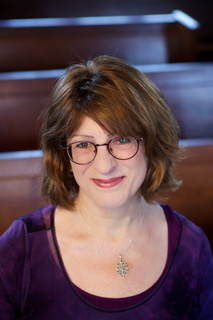My sister is developmentally disabled. Although she is very high functioning, she still needs a lot of support, including financially. She is able to live independently and, until two years ago, was fully employed. She is approaching 60 and, as she ages, her increasing physical issues affect her functioning. She was laid off from her job because she could no longer meet productivity expectations. Fortunately, she lives in subsidized housing, and there is a relatively good social safety net here in Canada. Still, I spend time and money ensuring that her life is meaningful and comfortable.
I am a congregant in a relatively small but very ambitious synagogue which conducts an annual capital campaign to cover both capital and operational expenses. In the past, I have been a generous donor. But the year my sister was laid off, I scaled back significantly. The following year her financial situation stabilized, and we had a better idea of what her resources would be. I was able to increase my donation significantly, but not to its previous level.
In the past year, my synagogue embarked upon a dialogue project to practice how to discuss difficult subjects and create a safe space in which to truly entertain our diversity of perspectives. The second dialogue was on how we allocate tzedakah, individually and communally. While not obviously a subject about which there would be a wide diversity of views, in the past our community has experienced considerable friction over it. In our first breakout session we focused on personal values and challenges. I spoke of my sister’s situation and how it has affected both my financial ability to contribute to causes important to me as well as my ability to devote time to social justice and human rights projects.
I received a number of quizzical responses. Some members of my group did not think that family responsibilities fell within the definition of tzedakah or social justice. To them, tzedakah and tikkun olam are what you do “out there”. If someone in your family needs your help, you just do it. I, on the other hand, consider the time and money I spend on my sister as tzedakah. Which made me wonder: am I conflating two distinctly different categories? Am I using my sister’s situation as an excuse not to give more of my money and my time to other causes that matter to me? There is so much that needs repairing in the world. This time of year especially, we are bombarded almost daily with “asks”. How do I decide, with integrity, where to expend my energy and resources?
Commenting on parshat Vayeira¹, Judith Plaskow observes how the Torah makes it clear that our ancestor are not always models of ethical behaviour. Often it holds up a mirror to the uglier aspects of human nature and society. It provides us with opportunities to look honestly at ourselves and the world we have created and to reflect on how we might change unhealthy patterns. The human and divine levels mirror each other and hold each other answerable to standards of justice and ethical norms.
In parshat Vayigash, Joseph provides us with such a mirror. Near the end, the Torah devotes 14 verses to a description of his economic policies in Egypt during the seven years of famine, which culminate in the enslavement of the Egyptians to Pharaoh (Bereshit 47:13-26). The passage is disturbingly bookended. Just before it, the Torah tells us that Joseph settled his father and brothers and their households, gave them land in Egypt, and sustained them with sufficient food (47:11-12). Afterward, we read that Israel settled in the land of Egypt, in Goshen, acquired property, were fruitful and multiplied. The contrast is stark. Joseph took care of his family while the Egyptians suffered. Joseph chose to privilege his family while he enslaved the people of the very land which enabled this prosperity.
Joseph provides a very real example of how we might behave in such circumstances, of one possible way of handling such an insidious conundrum. When resources are finite, decisions must be made about how best to distribute them. Who gets our attention? When is it enough? Faced with scarcity of resources, Joseph preferred his family, though he also did not let the Egyptians starve. Notwithstanding that, his methodology is deeply disturbing. Rather than simply reallocate resources, he exacted a high price from the Egyptians. Would the Judge of all the earth have judged Joseph’s behaviour as just? The Divine voice is noticeably absent in these verses. What would God have mirrored back to Joseph?
From my comfortable home in the 21st century, it may look like I am doing the same by giving priority to my sister’s needs while still giving to causes important to me: primarily my synagogue, local anti-poverty initiatives, disability inclusion, and women’s rights. But I am not. When I hold up Joseph’s mirror, when I hold him accountable, his is not a model of ethical behaviour that inspires or edifies me. Still he is a great mirror by which to examine my own behaviour in contrast and consider whether it meets a standard of justice that the Torah recognizes and values.
¹in The Torah: A Women’s Commentary, Tamara Cohn Eskenazi and Andrea L. Weiss, editors. Women of Reform Judaism: New York (2008), pp. 107-108.
Rabbi Susan Shamash is a progressive, independent rabbi living in Vancouver, B.C. She is an active member of Or Shalom Synagogue, affiliated with ALEPH: Alliance for Jewish Renewal, where she is a regular davenen’ leader and teaches a monthly Talmud class.

